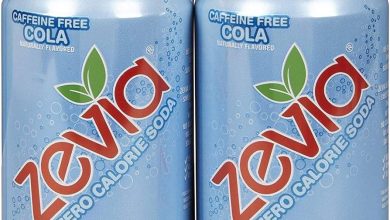Corn Muffins (Dry Mix) – Nutritional Breakdown
Corn muffins are a classic comfort food, perfect for breakfast or as a side dish to accompany various meals. When prepared using a dry corn muffin mix, they offer a hearty and flavorful option packed with nutrients.
Nutritional Information (Per Serving):
- Energy: 321 kcal
- Protein: 7.4 g
- Total Fat: 10.2 g
- Saturated Fat: 2.8 g
- Carbohydrates: 49.1 g
- Dietary Fiber: 2.4 g
- Sugar: 0.0 g
- Calcium: 75 mg
- Iron: 1.94 mg
- Magnesium: 21 mg
- Phosphorus: 384 mg
- Potassium: 131 mg
- Sodium: 795 mg
- Zinc: 0.64 mg
- Copper: 0.063 mcg
- Manganese: 0.221 mg
- Selenium: 15.2 mcg
- Vitamin C: 0.1 mg
- Thiamin (Vitamin B1): 0.249 mg
- Riboflavin (Vitamin B2): 0.276 mg
- Niacin (Vitamin B3): 2.1 mg
- Vitamin B6: 0.106 mg
- Folate: 11 mcg
- Vitamin B12: 0.16 mcg
- Vitamin A: 41 mcg
- Vitamin E: 0.0 mg
- Vitamin D2: 0.0 mcg
Allergen Information:
Corn muffins made from a dry mix typically contain ingredients like wheat flour, cornmeal, and sometimes milk or eggs, depending on the specific brand. Common allergens to be aware of include:
- Wheat (Gluten)
- Dairy (if milk powder is included)
- Eggs (depending on the mix)
Dietary Preferences:
- Vegetarian: Suitable for most vegetarian diets, depending on the inclusion of dairy or eggs.
- Gluten-Free: Not typically gluten-free unless specified by the manufacturer.
- Low Sodium: These muffins are relatively high in sodium, so those on a low-sodium diet may want to limit their intake.
- Vegan: May not be suitable unless you use a vegan dry mix or substitute eggs and milk with plant-based alternatives.
Preparation Tips:
To prepare your corn muffins, simply follow the instructions on the dry mix package, usually requiring a combination of water, oil, and sometimes eggs. Be sure to check if any additional ingredients are needed. You can also modify the recipe by adding ingredients such as shredded cheese, herbs, or jalapeños for an extra flavor boost.
Conclusion:
Corn muffins made from a dry mix offer a quick and easy option for a filling and nutritious meal accompaniment. They provide a moderate amount of energy and are a good source of carbohydrates and protein, while also delivering essential nutrients like iron, magnesium, and B vitamins. However, those on special diets should pay attention to allergens and nutritional content, especially sodium levels.










